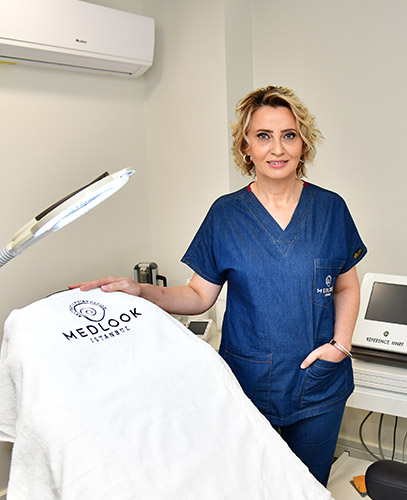
Many people notice an increase in hair shedding during certain times of the year, particularly in the fall and spring. This phenomenon, known as seasonal hair loss, is a common concern that can be distressing. While often temporary, it can understandably cause worry and a desire to seek solutions.
This article will explore effective strategies for managing hair loss that appear to fluctuate with the seasons. We’ll delve into a range of options, from simple at-home remedies to advanced professional hair loss treatments. At Istanbul Hair Institute, we understand the impact any form of hair loss can have. Our team of experts specializes in providing personalized hair restoration solutions, and we are committed to helping you understand and address your specific concerns.
Understanding Seasonal Hair Loss: Why Does It Happen?
While the exact cause of seasonal hair loss is still debated, several factors are thought to contribute to this phenomenon. It’s important to distinguish this type of shedding from other forms of hair loss, like androgenetic alopecia, which is primarily driven by genetics and hormones.
Possible Contributing Factors:
- Changes in Daylight Hours: Fluctuations in daylight exposure throughout the year can influence hormone levels, including melatonin, which may play a role in regulating the hair growth cycle. Some studies suggest a link between decreased daylight in fall and winter and an increase in hair entering the telogen (resting/shedding) phase.
- Temperature and Humidity Shifts: The transition from summer to fall, or winter to spring, often involves significant shifts in temperature and humidity. These environmental changes can affect the scalp and potentially trigger increased hair shedding. Dry, cold air, in particular, can dehydrate the scalp and hair, making it more prone to breakage.
- Natural Hair Growth Cycle Fluctuations: The human hair growth cycle naturally involves periods of increased shedding. It is thought that evolutionarily, humans shed more hair in the fall months. While everyone experiences shedding as part of the normal cycle, some individuals may notice a more pronounced increase during specific seasons.
It’s important to note that for most people, seasonal shedding is temporary and resolves on its own. However, if you’re experiencing excessive or prolonged hair loss, it’s always best to consult a specialist to rule out other underlying causes.

At-Home Remedies to Combat Seasonal Hair Loss
While professional treatments are available for more severe cases, there are many things you can do at home to manage seasonal hair loss and promote healthy hair growth. These hair loss remedies focus on nurturing your hair from the inside out:
- Dietary Adjustments: Ensure you’re consuming a balanced diet rich in essential nutrients for health. This includes:
- Protein: Hair is primarily made of protein, so adequate intake is crucial. Include lean meats, fish, eggs, beans, and lentils in your diet.
- Iron: Iron deficiency can contribute to hair loss. Good sources include red meat, spinach, and fortified cereals.
- Vitamins: Vitamins A, C, D, and E all play roles in hair health. Include a variety of fruits, vegetables, and nuts in your diet.
- Omega-3 Fatty Acids: Found in fatty fish, flaxseeds, and walnuts, these fats can help nourish the scalp and promote healthy hair growth.
- Scalp Care: A healthy scalp is the foundation for healthy hair.
- Gentle Scalp Massage: Regularly massaging your scalp can improve blood circulation, delivering nutrients to the hair follicles.
- Appropriate Shampoos/Conditioners: Use a gentle, moisturizing shampoo and conditioner suited for your hair type.
- Hydration: Just like your body, your hair needs to stay hydrated. Drink at least 8 glasses of water a day to maintain moisture balance in your scalp and hair.
- Stress Management: Stress can exacerbate hair shedding. Incorporate stress-reducing activities into your routine, such as yoga, meditation, deep breathing exercises, or spending time in nature.
- Supplements: Certain supplements, like biotin, vitamin D, and iron, may help support hair health. However, it’s crucial to consult with a doctor before taking any supplements, especially if you have underlying health conditions or are taking other medications.
Important Note: These at-home hair loss remedies can help manage mild to moderate seasonal shedding. However, if you experience excessive or persistent hair loss, it’s essential to consult a hair specialist or dermatologist to rule out other underlying causes.
Professional Treatments for Seasonal Hair Loss
While at-home remedies can help manage mild seasonal shedding, professional hair loss treatment options offer more advanced solutions for those experiencing significant hair loss or seeking faster, more noticeable results.
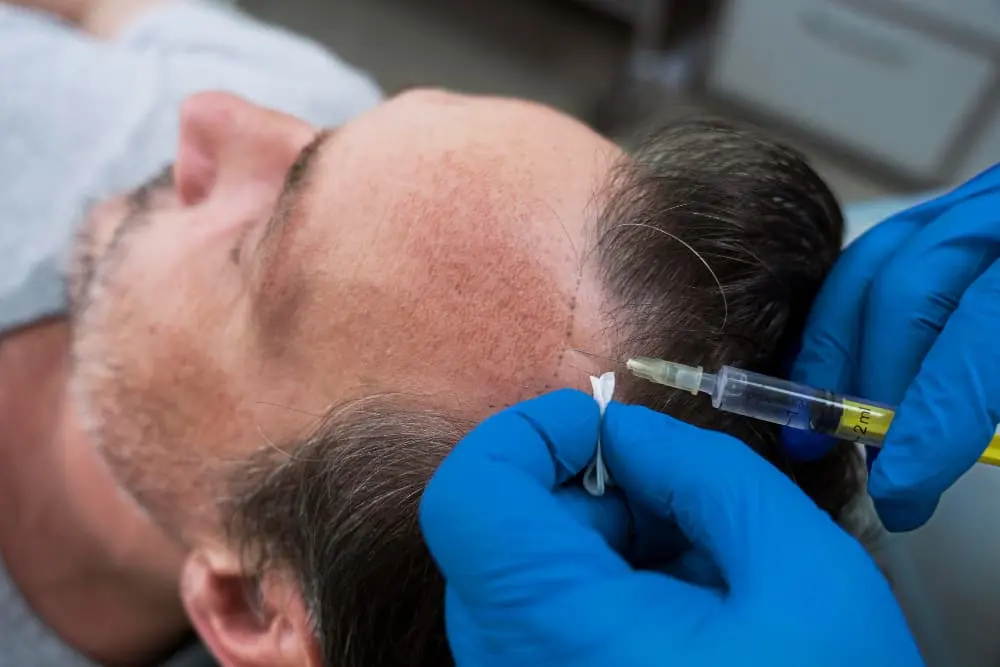
PRP therapy is a popular treatment that harnesses the body’s natural healing abilities to stimulate hair growth. The procedure involves drawing a small amount of the patient’s blood, processing it in a centrifuge to isolate the platelet-rich plasma, and then injecting this concentrated plasma into the scalp. Platelets contain growth factors that 1 can promote tissue regeneration and potentially awaken dormant hair follicles, leading to improved hair density and thickness.
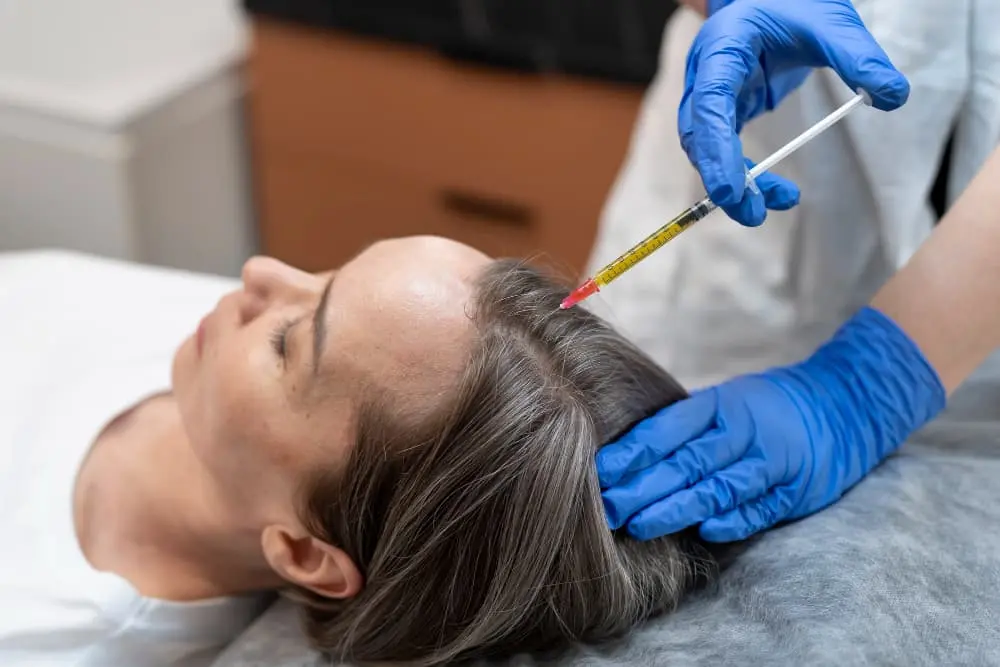
Mesotherapy for hair loss involves injecting a customized blend of vitamins, minerals, amino acids, and other beneficial substances directly into the scalp. This targeted approach nourishes the hair follicles, improves blood circulation, and can help strengthen existing hair, reducing shedding. It can also stimulate the growth of new hair.
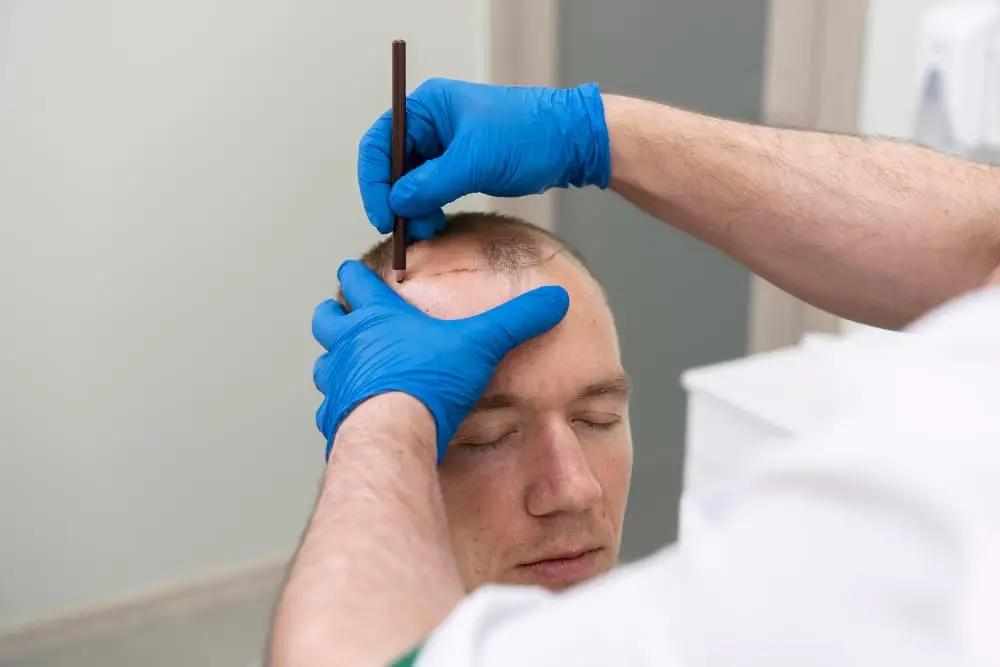
For more severe cases of hair loss, or in cases where the loss is not just seasonal, hair transplantation may be a viable option. This surgical procedure involves harvesting healthy hair follicles from a donor area (typically the back of the head) and transplanting them to the areas experiencing hair loss. Modern techniques, like Follicular Unit Excision (FUE) and direct hair transplant (DHI) allow for natural-looking results. This is usually not necessary for seasonal hair loss, however.
Nutritional and Hormonal Therapies
Sometimes, hair loss can be linked to underlying nutritional deficiencies or hormonal imbalances. A specialist can order blood tests to identify any such issues. Based on the results, they might recommend:
- Nutritional Therapy: Personalized dietary guidance or specific supplements to address identified deficiencies.
- Hormonal Therapy: In cases where hormonal imbalances are a factor, hormone replacement therapy or other hormonal treatments might be considered.
These therapies aim to address the root cause of hair loss and create an optimal environment for healthy hair growth.
When to See a Specialist: Recognizing the Need for Professional Help
While at-home remedies can sometimes provide relief for mild seasonal hair shedding, persistent or severe hair loss warrants professional attention. Consult a doctor if you notice:
- Excessive shedding lasts longer than a few months.
- Significant hair thinning or widening of your part.
- Patches of baldness or a receding hairline.
- Hair loss accompanied by scalp irritation, redness, or pain.
A doctor can accurately diagnose the cause of your hair loss. They will perform a thorough examination, which may include blood tests or scalp biopsy. This will allow them to create a hair loss treatment plan tailored to your specific needs.

Istanbul Hair Institute: Your Partner in Hair Restoration
At Istanbul Hair Institute, we understand the impact that hair loss can have on your self-esteem and overall well-being. Our team of experienced medical professionals provides effective hair restoration solutions, including those designed to address seasonal hair loss.
We combine cutting-edge technology with personalized treatment plans to help you achieve your desired results. We offer a range of advanced treatments, all tailored to your specific needs, and we prioritize patient comfort and safety throughout the process. If you’re concerned about hair loss, don’t hesitate to contact us. Istanbul Hair Institute in Turkey can help! Schedule a consultation today to discuss your concerns and explore your options.
Recent Posts
-
 Effective Solutions for Seasonal Hair Loss: What Treatments to Consider04 Feb 2025
Effective Solutions for Seasonal Hair Loss: What Treatments to Consider04 Feb 2025 -
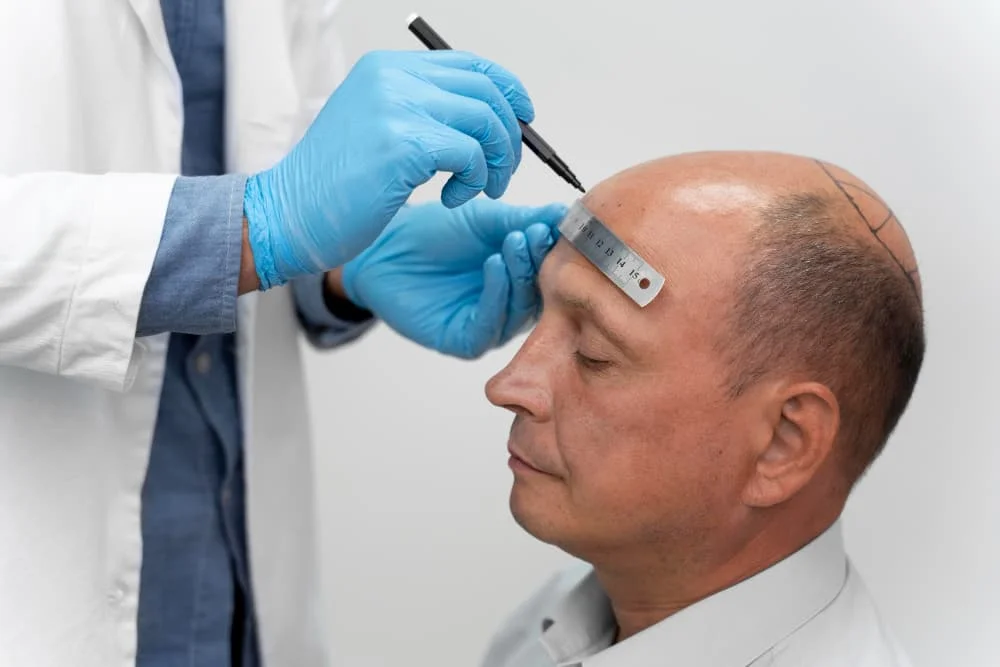 Does the Density of Hair Transplants Matter? Achieving a Full Look04 Feb 2025
Does the Density of Hair Transplants Matter? Achieving a Full Look04 Feb 2025 -
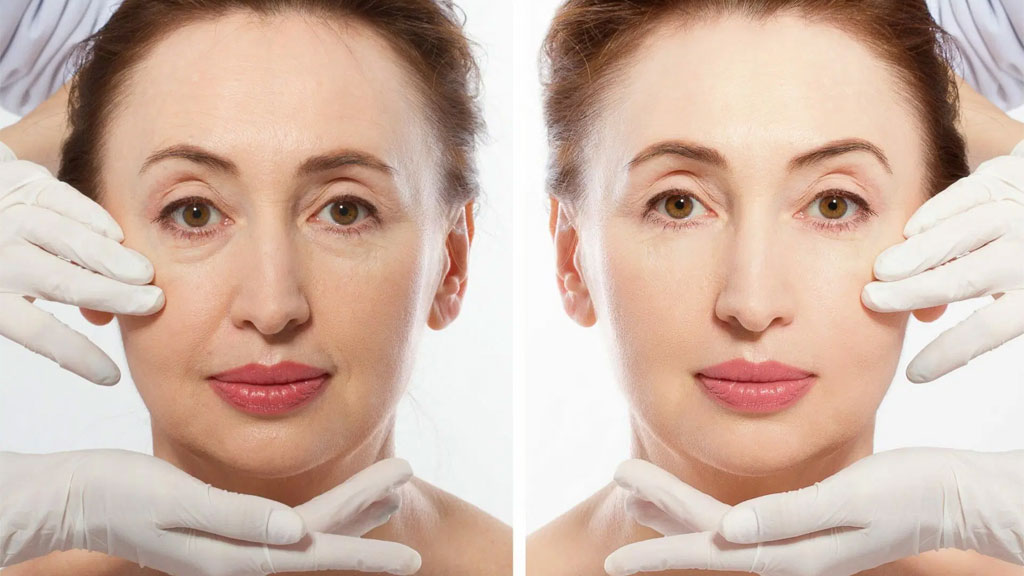 Look Younger: Mini Facelift and Neck Rejuvenation02 Feb 2025
Look Younger: Mini Facelift and Neck Rejuvenation02 Feb 2025 -
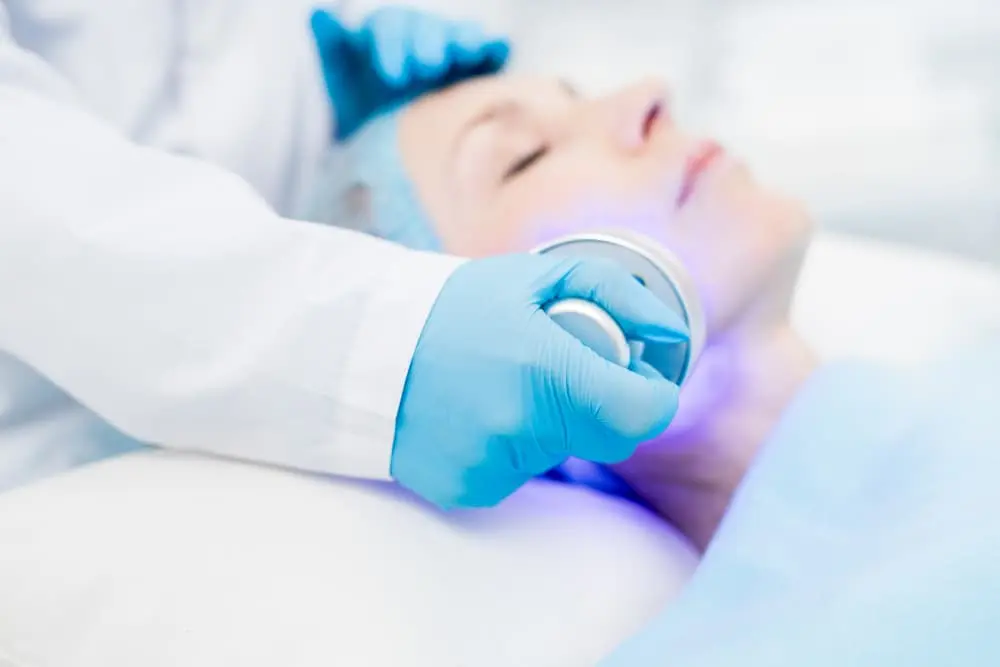 Can Ozone Therapy Really Boost Your Mood and Energy Levels?02 Feb 2025
Can Ozone Therapy Really Boost Your Mood and Energy Levels?02 Feb 2025 -
 Say Goodbye to Static: How to Get Rid of Static in Hair29 Jan 2025
Say Goodbye to Static: How to Get Rid of Static in Hair29 Jan 2025
